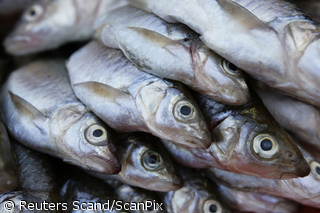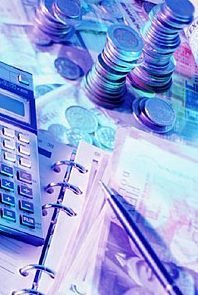President Robert Kocharian said on Friday that the renewed strengthening of the national currency, the dram, resulted not only from market factors but also speculative dealing, openly disagreeing with the Armenian Central Bank
Published:
12 December 2004 y., Sunday
President Robert Kocharian said on Friday that the renewed strengthening of the national currency, the dram, resulted not only from market factors but also speculative dealing, openly disagreeing with the Armenian Central Bank.
Kocharian was quoted by his press office as demanding “resolute and quick actions” to prevent further currency fluctuations during what appeared to be an emergency meeting with members of the bank's governing board. “According to the president, there are also speculative activities during such currency fluctuations,” the office said in a statement.
The statement did not say what specific action Kocharian expects from the Central Bank after a 6 percent rise in the dram’s value against the U.S. dollar during the first week of this month. The dollar’s depreciation in the Armenian market stopped only Friday, stabilizing at 475 drams.
The greenback has lost ground to other major world currencies in the course of the year, but its fall has been particularly dramatic in Armenia where it was worth 565 drams in December 2003. It has hit hard a large part of the country’s population dependent on dollar remittances from family members working abroad.
The Central Bank has said all along that the dram has been bolstered by a 50 percent jump in those remittances, denying a popular theory about local commercial banks and large-scale importers engaging in speculative trading. The bank’s chairman, Tigran Sarkisian, again ruled out any monetary intervention in the exchange rates as recently as Tuesday.
Šaltinis:
armenialiberty.org
Copying, publishing, announcing any information from the News.lt portal without written permission of News.lt editorial office is prohibited.
The most popular articles
 New legislation for pan-European supervision of credit rating agencies and a public debate on how financial institutions are managed.
more »
New legislation for pan-European supervision of credit rating agencies and a public debate on how financial institutions are managed.
more »
 On 2 June in Vilnius, Lithuania‘s Vice-Minister of Foreign Affairs Asta Skaisgirytė Liauškienė and Deputy Director General of the World Trade Organization Rufus H. Yerxa discussed the main issues on the international trade policy agenda, Russia‘s WTO accession and the changing role of China in the world economy.
more »
On 2 June in Vilnius, Lithuania‘s Vice-Minister of Foreign Affairs Asta Skaisgirytė Liauškienė and Deputy Director General of the World Trade Organization Rufus H. Yerxa discussed the main issues on the international trade policy agenda, Russia‘s WTO accession and the changing role of China in the world economy.
more »
 2157 former construction workers in Spain and 598 ex-employees at the Irish crystal glass company Waterford Crystal with suppliers could get €11 million in EU globalisation adjustment fund aid for training, self-employment and professional orientation under plans approved by the Budgets Committee on Wednesday.
more »
2157 former construction workers in Spain and 598 ex-employees at the Irish crystal glass company Waterford Crystal with suppliers could get €11 million in EU globalisation adjustment fund aid for training, self-employment and professional orientation under plans approved by the Budgets Committee on Wednesday.
more »
 Companies from the UK, Belgium, Germany and Spain have won the 2010 European Business Awards for the Environment.
more »
Companies from the UK, Belgium, Germany and Spain have won the 2010 European Business Awards for the Environment.
more »
 The planned overhaul of EU fisheries policy should devolve more powers to regions, protect small coastal fleets and boost aquaculture, said MEPs and members of national parliaments on Tuesday.
more »
The planned overhaul of EU fisheries policy should devolve more powers to regions, protect small coastal fleets and boost aquaculture, said MEPs and members of national parliaments on Tuesday.
more »
 The first in a series of loan agreements for energy efficiency investments in multi-apartment buildings was signed today between the European Investment Bank (EIB), as manager of the JESSICA holding fund in Lithuania, and Šiaulių bankas.
more »
The first in a series of loan agreements for energy efficiency investments in multi-apartment buildings was signed today between the European Investment Bank (EIB), as manager of the JESSICA holding fund in Lithuania, and Šiaulių bankas.
more »
 Despite the current economic crisis and tensions in the euro, Estonia is set to adopt the single currency in January.
more »
Despite the current economic crisis and tensions in the euro, Estonia is set to adopt the single currency in January.
more »
 Commission proposes a bank tax to cover the costs of winding down banks that go bust.
more »
Commission proposes a bank tax to cover the costs of winding down banks that go bust.
more »
 The European Investment Bank will provide a total of EUR 400 million to Hellenic Petroleum SA in order to increase the production of cleaner fuels via the upgrading of the Elefsina refinery.
more »
The European Investment Bank will provide a total of EUR 400 million to Hellenic Petroleum SA in order to increase the production of cleaner fuels via the upgrading of the Elefsina refinery.
more »
 European ministers meet on Tuesday and Wednesday in Brussels at the final Competitiveness Council to be held during the six months of the Spanish Presidency, which has an agenda laden with important issues such as the electric vehicle, the European patent system and national R+D investment goals.
more »
European ministers meet on Tuesday and Wednesday in Brussels at the final Competitiveness Council to be held during the six months of the Spanish Presidency, which has an agenda laden with important issues such as the electric vehicle, the European patent system and national R+D investment goals.
more »